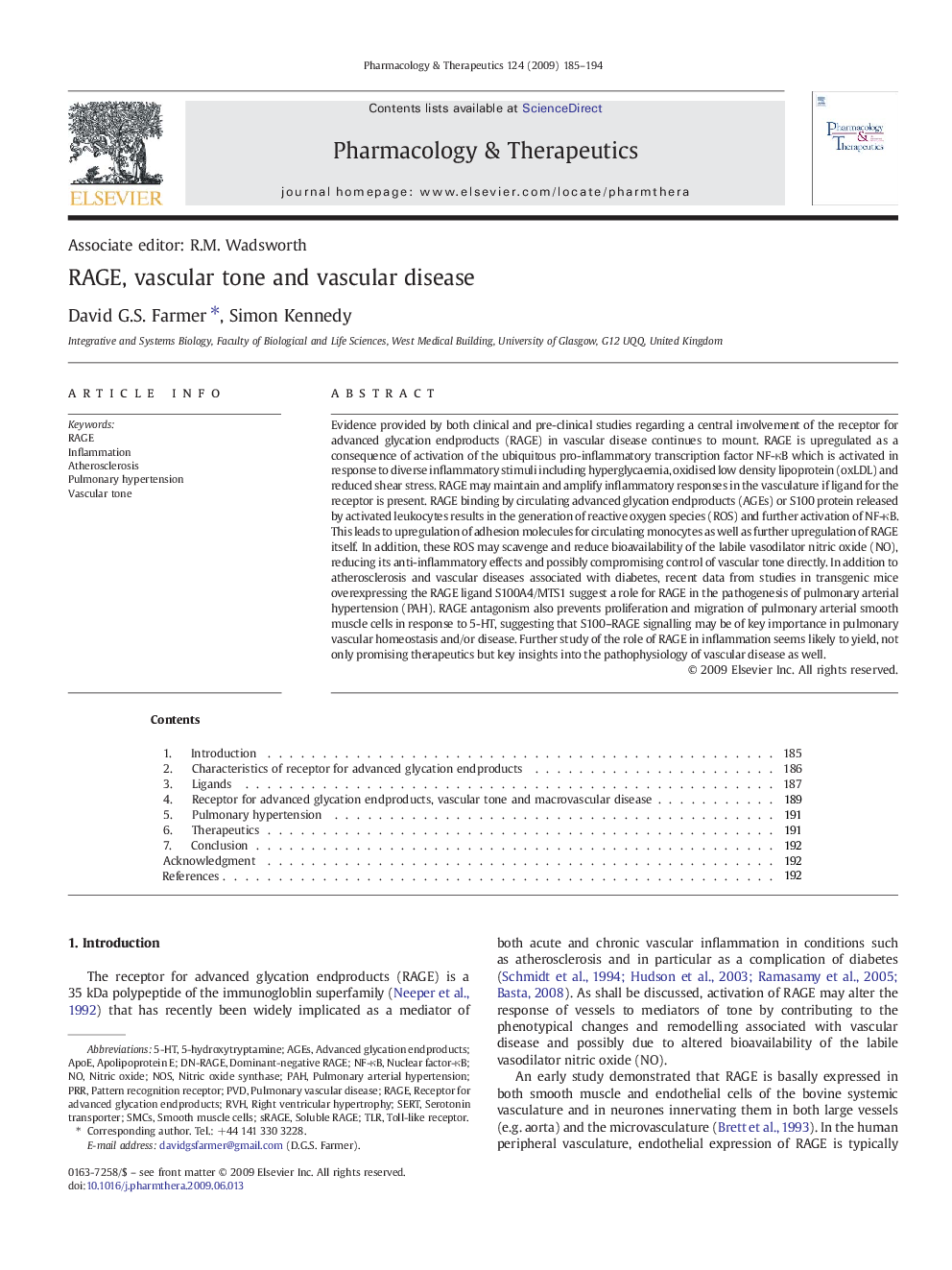| Article ID | Journal | Published Year | Pages | File Type |
|---|---|---|---|---|
| 2563951 | Pharmacology & Therapeutics | 2009 | 10 Pages |
Evidence provided by both clinical and pre-clinical studies regarding a central involvement of the receptor for advanced glycation endproducts (RAGE) in vascular disease continues to mount. RAGE is upregulated as a consequence of activation of the ubiquitous pro-inflammatory transcription factor NF-κB which is activated in response to diverse inflammatory stimuli including hyperglycaemia, oxidised low density lipoprotein (oxLDL) and reduced shear stress. RAGE may maintain and amplify inflammatory responses in the vasculature if ligand for the receptor is present. RAGE binding by circulating advanced glycation endproducts (AGEs) or S100 protein released by activated leukocytes results in the generation of reactive oxygen species (ROS) and further activation of NF-κB. This leads to upregulation of adhesion molecules for circulating monocytes as well as further upregulation of RAGE itself. In addition, these ROS may scavenge and reduce bioavailability of the labile vasodilator nitric oxide (NO), reducing its anti-inflammatory effects and possibly compromising control of vascular tone directly. In addition to atherosclerosis and vascular diseases associated with diabetes, recent data from studies in transgenic mice overexpressing the RAGE ligand S100A4/MTS1 suggest a role for RAGE in the pathogenesis of pulmonary arterial hypertension (PAH). RAGE antagonism also prevents proliferation and migration of pulmonary arterial smooth muscle cells in response to 5-HT, suggesting that S100–RAGE signalling may be of key importance in pulmonary vascular homeostasis and/or disease. Further study of the role of RAGE in inflammation seems likely to yield, not only promising therapeutics but key insights into the pathophysiology of vascular disease as well.
